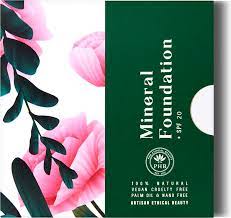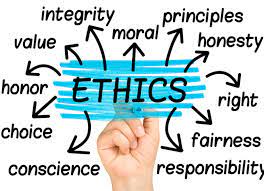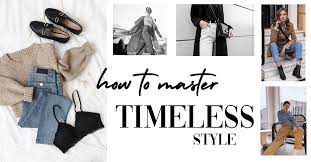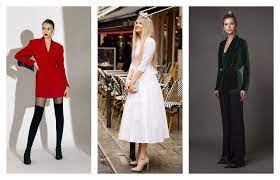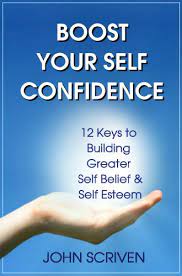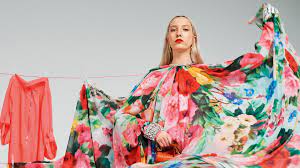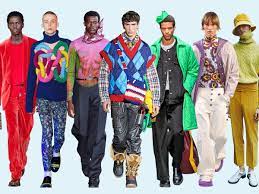Unleashing the Power of Self-Expression: Embracing Your Authentic Voice
Self-Expression: The Art of Unleashing Your Inner Voice
Self-expression is a powerful form of communication that allows individuals to convey their thoughts, emotions, and unique perspectives to the world. It is the art of finding your voice and fearlessly sharing it with others. Whether through words, actions, art, or fashion, self-expression enables us to connect with others on a deeper level and cultivate a sense of authenticity.
In a world that often emphasizes conformity and fitting into societal norms, self-expression serves as a vital tool for personal growth and fulfillment. It allows us to break free from the constraints of external expectations and embrace our true selves. By embracing self-expression, we can tap into our creativity, explore our passions, and discover what makes us truly happy.
One of the most beautiful aspects of self-expression is its limitless nature. There are countless avenues through which we can express ourselves – from writing poetry or painting a canvas to dancing or playing an instrument. Each individual possesses a unique set of talents and interests that can be harnessed as vehicles for self-expression.
Self-expression also plays a crucial role in fostering connection and understanding among people. When we openly express ourselves, we invite others to do the same. This exchange creates an environment where diverse perspectives are celebrated rather than suppressed. It encourages empathy, tolerance, and mutual respect as we learn from one another’s experiences and gain new insights into different ways of thinking.
Moreover, self-expression empowers individuals to stand up for what they believe in. By vocalizing our opinions and advocating for causes close to our hearts, we contribute to positive change in society. Through art, activism, or even simple acts of kindness, we can make a difference by authentically expressing who we are and what matters most to us.
It is important to note that self-expression is not about seeking validation or conforming to societal standards of acceptance. True self-expression comes from within; it is an honest reflection of our innermost thoughts and feelings. It requires courage and vulnerability to share our authentic selves with the world, but the rewards are immeasurable.
In a world that can sometimes be overwhelming and demanding, self-expression offers solace and a sense of liberation. It allows us to release emotions, find catharsis, and create something meaningful. By embracing self-expression, we give ourselves permission to be unapologetically who we are, celebrating both our strengths and imperfections.
So, let us encourage one another to express ourselves freely and without fear. Let us create spaces where diverse voices can be heard and celebrated. Let us embrace the power of self-expression as a catalyst for personal growth, human connection, and positive change. Remember, your voice matters – so go ahead and let it be heard!
8 Benefits of Self-Expression: Enhancing Self-Confidence, Boosting Creativity, Effective Communication, Stress Relief, Strengthened Relationships, Mental Well-being, Fulfilment, and Productivity Boost
- Improved self-confidence
- Increased creativity
- Improved communication
- Stress relief
- Improved relationships
- Mental health benefits
- A sense of fulfilment
- Increased productivity
Potential Pitfalls of Self-Expression: Navigating Misunderstandings, Inappropriateness, Misinterpretation, Criticism, and Alienation
- It can lead to misunderstandings if not expressed clearly.
- It can be seen as inappropriate in certain situations or contexts.
- It can be misinterpreted by others, leading to hurt feelings or conflict.
- Expressing yourself openly may make you vulnerable to criticism from others who do not agree with your views or opinions.
- Self-expression can be seen as attention-seeking behaviour, which could lead to alienation from those around you.
Improved self-confidence
Improved self-confidence: Expressing yourself can help build your confidence and self-esteem.
Self-expression is not just a means of communication; it is also a powerful tool for personal growth and development. One of the significant benefits of self-expression is its ability to enhance self-confidence and boost self-esteem.
When we express ourselves authentically, whether through words, art, fashion, or any other form of creative expression, we are embracing our true selves. This act of embracing who we are and sharing it with the world can have a profound impact on our confidence levels.
By expressing ourselves, we send a powerful message to ourselves and others that our thoughts, feelings, and ideas are valid and worthy of being heard. It allows us to break free from the fear of judgment or rejection and embrace our uniqueness. This newfound sense of acceptance creates a positive feedback loop where the more we express ourselves, the more confident we become.
Moreover, when we express ourselves honestly, we attract like-minded individuals who appreciate us for who we truly are. These connections further reinforce our sense of self-worth and validate our authentic expression. Surrounding ourselves with people who support and encourage us in our self-expression journey can be incredibly empowering.
Self-expression also provides an opportunity for personal exploration and growth. As we delve into different forms of expression, whether it’s writing, painting, singing, or dancing, we discover new facets of ourselves. We uncover hidden talents and passions that contribute to our overall sense of self-confidence.
Furthermore, expressing ourselves allows us to assert our boundaries and assertiveness. By openly communicating our needs, desires, and boundaries to others, we establish healthier relationships built on mutual respect. This assertiveness not only strengthens our confidence but also enhances our ability to navigate various social situations with ease.
It’s important to note that self-expression doesn’t have to be grand or extravagant; even small acts like speaking up in a meeting or sharing your opinion in a conversation can contribute to improved self-confidence. Every act of self-expression, no matter how big or small, has the power to build our confidence and reinforce our belief in ourselves.
In conclusion, self-expression is a powerful tool for personal growth and development. By embracing our authentic selves and expressing it to the world, we can significantly improve our self-confidence and self-esteem. So, let go of inhibitions, embrace your uniqueness, and let your voice be heard. The more you express yourself, the more confident you’ll become.
Increased creativity
Increased Creativity: Unleashing the Power of Self-Expression
Self-expression is a gateway to creativity, offering a limitless playground for exploring new ideas and expressing them in unique and innovative ways. When we allow ourselves the freedom to express our thoughts, emotions, and perspectives, we tap into a wellspring of creativity that can lead to personal growth and discovery.
One of the greatest advantages of self-expression is its ability to fuel our creative instincts. By embracing different forms of expression such as writing, painting, dancing, or even experimenting with fashion, we open ourselves up to new possibilities and expand our creative horizons. Through self-expression, we give ourselves permission to think outside the box, challenge conventional norms, and explore uncharted territories.
When we engage in self-expression, we are not bound by rules or limitations. It becomes a safe space where imagination can run wild and ideas can flow freely. This uninhibited exploration allows us to discover hidden talents and strengths that may have otherwise remained dormant. We find ourselves experimenting with new techniques, combining different mediums or styles, and pushing the boundaries of what is considered conventional.
Moreover, self-expression nurtures a sense of authenticity in our creative endeavors. When we express ourselves honestly and genuinely, our creations become an extension of who we are. This authenticity adds depth and meaning to our work, making it more relatable and impactful for both ourselves and others who engage with it.
Through self-expression, we also learn to embrace failure as an essential part of the creative process. It teaches us resilience and encourages us to take risks without fear of judgment or rejection. By allowing ourselves the freedom to make mistakes and learn from them, we grow as artists and creators.
Additionally, self-expression fosters a sense of connection between individuals who share common interests or appreciate various art forms. It creates communities where people can exchange ideas, collaborate on projects, or simply find inspiration in one another’s work. These connections provide valuable feedback, encouragement, and a sense of belonging that further fuels our creativity.
In a world that often values conformity and standardization, self-expression becomes a powerful tool for reclaiming our individuality and celebrating our unique perspectives. It allows us to break free from societal expectations and explore the vast landscape of our imagination. By embracing self-expression, we unlock the door to increased creativity, paving the way for personal growth, innovation, and a deeper understanding of ourselves and the world around us. So, let your creativity soar through self-expression and see where it takes you on your artistic journey.
Improved communication
Improved Communication: Unlocking the Power of Self-Expression
In a world where effective communication is key, self-expression serves as a powerful tool to enhance our ability to connect with others. By expressing ourselves authentically, we open the door to improved communication and foster deeper understanding in our relationships.
When we express ourselves honestly, whether through words, gestures, or creative outlets, we allow others to glimpse into our thoughts and emotions. This vulnerability creates a space for genuine connection and empathy. By sharing our inner world, we invite others to do the same, creating an environment of open dialogue and mutual understanding.
Self-expression also enables us to articulate our needs and desires more effectively. By communicating our thoughts and emotions clearly, we can avoid misunderstandings and resolve conflicts more efficiently. When we express ourselves honestly, we give others the opportunity to truly hear us and respond in a meaningful way.
Furthermore, self-expression helps us build trust with those around us. When we are authentic in our communication, it fosters an atmosphere of honesty and sincerity. People appreciate when others speak from their hearts, as it creates a sense of reliability and authenticity. This trust forms the foundation for strong relationships built on open communication.
Additionally, self-expression allows us to break down barriers of cultural or linguistic differences. When words fail us or language becomes a barrier, non-verbal forms of expression such as art or music can bridge gaps and convey emotions that transcend language barriers. Through these creative outlets, we can communicate on a deeper level with people from diverse backgrounds.
By embracing self-expression as a means of communication, we also encourage creativity and innovation. When individuals feel free to express their ideas without fear of judgment or rejection, it cultivates an environment where new perspectives can flourish. This exchange of ideas leads to collaboration and problem-solving that is enriched by diverse viewpoints.
In conclusion, self-expression is not only about personal fulfillment but also about improving communication with others. By expressing ourselves honestly and authentically, we create an environment that fosters understanding, trust, and effective dialogue. Whether through words, actions, or creative outlets, self-expression unlocks the power to connect with others on a deeper level. So, let your voice be heard and embrace the transformative potential of self-expression in your daily interactions.
Stress relief
Stress Relief: The Therapeutic Power of Self-Expression
In today’s fast-paced world, stress and anxiety have become all too common. The pressures of work, relationships, and daily responsibilities can take a toll on our mental well-being. However, one effective way to combat these overwhelming feelings is through self-expression.
Expressing yourself provides a much-needed outlet for emotions and thoughts that may otherwise be bottled up inside. Whether it’s writing in a journal, painting, dancing, or even singing at the top of your lungs, self-expression allows you to release pent-up tension and find relief from stress.
When we express ourselves creatively or verbally, we tap into a wellspring of emotions that may have been suppressed. This act of release brings a sense of liberation and catharsis. It allows us to let go of negative energy and make room for positive emotions to flourish.
Engaging in self-expression also helps us gain clarity and perspective. By putting our thoughts and feelings into words or art forms, we can better understand ourselves and the situations that are causing stress. It’s like shining a light on the chaos within our minds and finding order amidst the turmoil.
Furthermore, self-expression provides an opportunity for introspection and self-reflection. It encourages us to explore our inner landscape, uncovering hidden desires, fears, or dreams that may have been buried beneath the surface. Through this process, we can gain valuable insights into ourselves and find ways to navigate through life’s challenges with greater resilience.
Moreover, when we express ourselves authentically without fear of judgment or criticism, we create a safe space for self-acceptance. This acceptance allows us to embrace our vulnerabilities as part of being human rather than seeing them as weaknesses. In turn, this reduces anxiety levels by alleviating the pressure to constantly meet external expectations.
Whether it’s through writing poetry as an emotional outlet or painting as a form of meditation, finding a creative outlet for self-expression is a powerful tool for stress relief. It allows us to reconnect with ourselves, find solace in our passions, and regain a sense of balance in our lives.
So, if you’re feeling overwhelmed by stress and anxiety, consider exploring different avenues of self-expression. Find what resonates with you – be it writing, painting, dancing, or any other form of creative expression. Give yourself permission to let go, express your emotions freely, and experience the therapeutic benefits that self-expression can bring.
Remember, self-expression is not just a luxury; it is an essential act of self-care. By prioritizing your well-being and finding healthy ways to release stress through self-expression, you can create a more balanced and fulfilling life.
Improved relationships
Improved Relationships: The Power of Self-Expression in Building Strong Connections
In a world where communication is key, self-expression plays a vital role in forging deep and meaningful relationships. When we are able to express ourselves authentically, it opens the doors to better understanding and connection with others. The ability to communicate our thoughts, emotions, and desires allows us to build stronger bonds and cultivate healthier relationships.
When we express ourselves openly, it becomes easier for others to understand who we truly are. By sharing our thoughts, feelings, and experiences, we invite others into our world and give them a glimpse of our inner selves. This transparency fosters empathy and compassion as they gain insight into our perspectives and emotions.
Likewise, self-expression enables us to better understand those around us. When individuals feel comfortable expressing themselves freely, it creates an environment where open dialogue thrives. By actively listening and engaging in meaningful conversations, we can gain a deeper understanding of others’ thoughts, feelings, and values. This mutual exchange of self-expression helps build trust and strengthens the foundation of any relationship.
Furthermore, self-expression encourages authenticity in relationships. When we are true to ourselves and express our genuine thoughts and emotions, it sets the stage for honest interactions with others. Authenticity breeds trust and respect as people appreciate the courage it takes to be vulnerable and share one’s true self.
Self-expression also allows for effective conflict resolution within relationships. When disagreements arise, being able to express ourselves calmly yet assertively can help prevent misunderstandings from escalating into larger issues. By openly communicating our concerns or grievances while still valuing the other person’s perspective, we create space for compromise and resolution.
In addition to verbal expression, non-verbal forms of self-expression such as body language or art can also enhance relationships. Sometimes words may fall short in conveying complex emotions or experiences; however, through artistic expression or non-verbal cues like facial expressions or gestures, we can bridge the gap and communicate on a deeper level.
Ultimately, self-expression is a powerful tool that strengthens relationships by fostering understanding, empathy, and authenticity. It allows us to be seen and heard, while also creating space for others to express themselves freely. When we embrace self-expression in our interactions, we nurture connections that are built on trust, respect, and mutual understanding.
So, let us encourage one another to express ourselves genuinely and listen attentively. By valuing each other’s perspectives and emotions, we can create an environment where relationships thrive and grow stronger. Remember, the power of self-expression lies in its ability to forge meaningful connections with those around us.
Mental health benefits
The Power of Self-Expression: Nurturing Mental Health
In a world where mental health is increasingly recognized as a priority, self-expression emerges as a valuable tool in promoting emotional well-being. Expressing ourselves provides an outlet for processing emotions in a healthy way, reducing the risk of depression, anxiety, and other mental health issues such as PTSD (post-traumatic stress disorder).
When we express ourselves authentically, whether through art, writing, music, or even conversation, we create space to acknowledge and confront our emotions. By giving voice to our innermost thoughts and feelings, we allow ourselves to release pent-up emotions that may otherwise fester and negatively impact our mental well-being.
Through self-expression, we find solace in sharing our experiences with others who may resonate with our struggles. This connection helps to alleviate feelings of isolation and reminds us that we are not alone in our challenges. The act of expressing ourselves can foster empathy and understanding from those who listen or engage with our creative output.
Moreover, self-expression offers a form of catharsis. It allows us to externalize what may feel overwhelming internally. By transforming intangible emotions into tangible creations or conversations, we gain a sense of control over our internal landscape. This process can be incredibly empowering and contribute to overall mental resilience.
For individuals who have experienced trauma or difficult life events, self-expression becomes even more crucial. It serves as a safe space for processing and healing from past wounds. By giving voice to painful experiences through various means such as therapy, writing journals, or engaging in artistic endeavors like painting or dancing, individuals can gradually navigate their way towards recovery.
Engaging in regular self-expression practices can also serve as a form of self-care. It allows us to prioritize our emotional well-being by dedicating time and energy towards nurturing our inner selves. This act of self-nurturing contributes to building resilience against stressors that may otherwise impact our mental health.
In summary, the benefits of self-expression on mental health are significant. By providing a healthy outlet for emotions, fostering connection and empathy, and aiding in the processing of trauma, self-expression becomes a powerful tool for nurturing our mental well-being. So, let us embrace the transformative power of self-expression and cultivate a world where mental health is prioritized and celebrated.
A sense of fulfilment
A sense of fulfilment: Unleashing the Power of Self-Expression
Self-expression is not just about conveying our thoughts and emotions to others; it also holds the key to personal satisfaction and a deeper connection with ourselves. By expressing our feelings, thoughts, and opinions, we open the door to a greater sense of fulfilment in life, leading to a more profound appreciation of who we are as individuals.
When we express ourselves authentically, whether through writing, art, or simply sharing our thoughts with others, we allow our innermost selves to be seen and heard. This act of vulnerability brings a profound sense of liberation and empowerment. We no longer carry the weight of unspoken words or suppressed emotions; instead, we find release and freedom in expressing ourselves openly.
Through self-expression, we gain clarity about our own values, beliefs, and desires. It acts as a mirror that reflects back to us what truly matters to us. By articulating our thoughts and opinions, we solidify our understanding of ourselves and develop a stronger sense of identity. This self-awareness allows us to make choices aligned with our authentic selves, leading to a more fulfilling life.
Moreover, self-expression nurtures personal growth and development. As we explore different forms of expression – be it writing, painting, dancing or any other creative outlet – we tap into our innate talents and passions. By engaging in activities that resonate with us on a deep level, we experience a sense of purpose and accomplishment. Each act of self-expression becomes an opportunity for growth and self-improvement.
Furthermore, when we express ourselves honestly and openly, we invite meaningful connections with others who resonate with our true selves. Authenticity attracts authenticity. By sharing our thoughts and emotions genuinely, we create opportunities for genuine connections based on shared values or experiences. These connections enrich our lives by providing support, understanding, and validation.
In essence, self-expression is an essential ingredient for leading a fulfilling life. It allows us to release our innermost thoughts and emotions, leading to a sense of liberation and empowerment. By expressing ourselves authentically, we gain clarity about our values and desires, paving the way for choices that align with our true selves. Moreover, self-expression fosters personal growth and attracts meaningful connections with others.
So, let us embrace the power of self-expression and experience the profound sense of fulfilment it brings. Let us find the courage to express ourselves honestly and openly, knowing that by doing so, we not only enrich our own lives but also inspire others to do the same. Let self-expression be a guiding force in our journey towards self-discovery, personal growth, and a more fulfilling existence.
Increased productivity
Increased Productivity: Unleashing the Power of Self-Expression
In a world filled with deadlines, responsibilities, and endless to-do lists, finding ways to boost productivity is a constant pursuit. One often overlooked but highly effective method is through the power of self-expression. When we allow ourselves the freedom to express our thoughts, ideas, and emotions without fear or judgment, we unlock a hidden wellspring of motivation and focus that can significantly enhance our productivity in all aspects of life.
When we feel free to express ourselves authentically, we experience a sense of liberation that transcends into our daily tasks. By removing the barriers that hinder self-expression, we create an environment that fosters creativity and innovation. This newfound freedom allows our minds to wander and explore new possibilities, leading to fresh ideas and perspectives.
Moreover, self-expression ignites a deep sense of passion within us. When we are able to communicate our true thoughts and emotions without inhibition, it fuels our motivation levels. We become more driven to accomplish our goals because we are no longer suppressing our inner voice. This surge in motivation propels us forward with a renewed sense of purpose and determination.
Furthermore, self-expression enhances focus. When we feel comfortable expressing ourselves openly, it eliminates mental clutter caused by pent-up thoughts or emotions. This mental clarity enables us to concentrate fully on the tasks at hand without distractions or internal conflicts. As a result, our ability to prioritize effectively improves, allowing us to tackle tasks more efficiently.
An important aspect of self-expression is that it encourages open communication with others. When we express ourselves freely, it creates an atmosphere where ideas can flow openly among colleagues or collaborators. This exchange of thoughts fosters collaboration and teamwork as individuals feel empowered to contribute their unique perspectives. The collective creativity that emerges from such an environment can lead to groundbreaking solutions and increased productivity on group projects.
It is worth noting that self-expression does not necessarily mean being loud or outspoken. It is about finding the means of communication that resonate with our individuality. Whether it’s through writing, art, verbal expression, or any other form, the key is to find a way to express ourselves genuinely and authentically.
In conclusion, when we embrace self-expression in our lives, we unlock a multitude of benefits that extend beyond personal satisfaction. Increased productivity is one such advantage that arises from the freedom to express ourselves without fear or judgment. By nurturing an environment that encourages self-expression, we tap into our inner motivation, focus more effectively on tasks at hand, and foster collaboration with others. So let us embrace the power of self-expression and witness its transformative impact on our daily lives.
It can lead to misunderstandings if not expressed clearly.
The Double-Edged Sword of Self-Expression: The Importance of Clarity
Self-expression is a beautiful and empowering form of communication, allowing individuals to convey their thoughts, emotions, and unique perspectives. However, like any tool, it comes with its own set of challenges. One significant con of self-expression is the potential for misunderstandings if not expressed clearly.
When we express ourselves, whether through words, actions, or art, we open ourselves up to interpretation. Our intentions may be clear in our minds, but they can easily be misinterpreted by others. This can lead to confusion, conflicts, and strained relationships.
Misunderstandings often arise when our self-expression lacks clarity. If we are not mindful of how we communicate our thoughts and emotions, they may be misconstrued or misinterpreted by others. The nuances of language and non-verbal cues can easily be lost in translation.
Moreover, the subjective nature of self-expression means that different individuals may interpret the same message in various ways. What seems crystal clear to us may be open to multiple interpretations for others. This disparity in understanding can result in friction and strained relationships if left unresolved.
To mitigate this con of self-expression, it is crucial to strive for clarity in our communication. Here are a few tips to help ensure that our self-expression is understood as intended:
- Reflect before expressing: Take a moment to reflect on what you want to convey and consider how it might be perceived by others. This self-awareness will help you tailor your message more effectively.
- Choose your words carefully: Be mindful of the words you use and their potential impact on others. Consider the context and choose language that accurately reflects your thoughts while minimizing ambiguity.
- Use active listening: When engaging in conversations or discussions with others, actively listen to their perspectives and seek clarification if something seems unclear or misunderstood. This demonstrates respect and a willingness to bridge any gaps in understanding.
- Embrace empathy and understanding: Recognize that everyone interprets information differently based on their own experiences and perspectives. Cultivate empathy and seek to understand others’ viewpoints, even if they differ from your own.
- Seek feedback: If you are unsure whether your self-expression is clear, don’t hesitate to seek feedback from trusted individuals. Their input can help you refine your message and ensure it aligns with your intentions.
In conclusion, while self-expression is a powerful tool for personal growth and connection, it can lead to misunderstandings if not expressed clearly. By being mindful of our communication, striving for clarity, and actively seeking understanding, we can navigate this con of self-expression and foster meaningful connections with others.
It can be seen as inappropriate in certain situations or contexts.
Navigating the Boundaries of Self-Expression: Understanding Contextual Appropriateness
Self-expression is a beautiful and empowering form of communication, allowing individuals to share their thoughts, emotions, and unique perspectives with the world. However, it is important to recognize that there are situations and contexts where certain forms of self-expression may be deemed inappropriate or unsuitable.
While self-expression encourages authenticity and openness, it is crucial to consider the impact our words or actions may have on others. In certain professional or formal settings, for example, there are social norms and expectations that call for a more restrained approach to self-expression. It is essential to strike a balance between expressing oneself and respecting the boundaries set by the situation.
Inappropriate self-expression can occur when our words or actions offend or disrespect others, undermine their beliefs or values, or create an uncomfortable environment. It is essential to be mindful of cultural differences, social norms, and the sensitivities of those around us. By being aware of these factors, we can exercise empathy and adapt our self-expression accordingly.
Furthermore, self-expression should not be used as an excuse for harmful behavior or as a means to justify offensive language or actions. It is crucial to remember that freedom of expression comes with responsibility. While we have the right to express ourselves freely, it does not absolve us from considering the potential consequences our words and actions may have on others.
In some cases, inappropriate self-expression can lead to misunderstandings or strained relationships. It is important to engage in open dialogue when conflicts arise due to differing expressions of opinion. By respectfully listening to others’ perspectives and finding common ground, we can foster understanding while still maintaining our individuality.
Understanding contextual appropriateness requires emotional intelligence – the ability to gauge the appropriate level of self-expression based on the situation at hand. This awareness allows us to adapt our communication style without compromising our core values.
In conclusion, while self-expression is a powerful tool for personal growth and connection, it is essential to recognize that there are situations where certain forms of expression may be inappropriate. By being mindful of the context, respecting others’ boundaries, and exercising empathy, we can navigate the delicate balance between self-expression and appropriateness. Let us embrace self-expression as a means to foster understanding and create positive connections while remaining sensitive to the needs and perspectives of those around us.
It can be misinterpreted by others, leading to hurt feelings or conflict.
Navigating the Pitfalls of Self-Expression: Misinterpretation and Conflict
While self-expression is a powerful tool for personal growth and connection, it is not without its challenges. One of the potential downsides of self-expression is that it can be misinterpreted by others, leading to hurt feelings or even conflict. It’s important to recognize this con and understand how to navigate it effectively.
When we express ourselves, we open up a window into our thoughts, emotions, and beliefs. However, the way we communicate our inner world may not always align with how others perceive it. Our words, actions, or artistic creations can be subject to varying interpretations based on individual perspectives, experiences, and biases.
Misinterpretation can occur due to a range of factors such as cultural differences, communication styles, or simply misunderstandings. What may seem clear and meaningful to us might be received differently by someone else. This disconnect in understanding can lead to hurt feelings or even strained relationships if left unaddressed.
To mitigate the risk of misinterpretation and potential conflict arising from it, there are several strategies that can be employed:
- Cultivate empathy: Recognize that others may have different perspectives and interpretations of your self-expression. Put yourself in their shoes and try to understand how they might perceive your message.
- Clarify intentions: When expressing yourself, make an effort to clearly communicate your intentions. Providing context or explaining the meaning behind your words or actions can help reduce misunderstandings.
- Active listening: Actively listen when others respond or provide feedback on your self-expression. Pay attention to their concerns or questions and respond with openness and respect. This demonstrates a willingness to engage in constructive dialogue.
- Seek understanding: If misinterpretation occurs, approach the situation with curiosity rather than defensiveness. Ask questions to better understand how your expression was perceived differently than intended.
- Practice effective communication: Develop strong communication skills to express yourself clearly and concisely. Consider the audience and tailor your message accordingly, ensuring it is more likely to be understood as intended.
Remember, misinterpretation does not mean you should shy away from self-expression altogether. It is a natural part of human interaction, and conflicts can arise even when we strive for clarity. By being mindful of potential misunderstandings and actively working towards understanding, we can navigate the challenges that come with self-expression more effectively.
Ultimately, self-expression is a deeply personal journey that requires both vulnerability and resilience. While misinterpretation may occur along the way, it should not deter us from sharing our authentic selves with the world. By fostering empathy, open dialogue, and effective communication, we can cultivate an environment where self-expression can flourish while minimizing the potential for hurt feelings or conflict.
Expressing yourself openly may make you vulnerable to criticism from others who do not agree with your views or opinions.
Navigating the Con of Self-Expression: Dealing with Criticism and Differing Opinions
Self-expression is a beautiful and empowering form of communication, allowing us to share our thoughts, opinions, and unique perspectives with the world. However, it is important to acknowledge that expressing ourselves openly can sometimes make us vulnerable to criticism from those who may not agree with our views. This con of self-expression highlights the need for resilience and understanding in dealing with differing opinions.
In a diverse and interconnected world, it is natural for people to hold varying beliefs, values, and perspectives. When we express ourselves openly, we invite others to engage in conversations or debates that may challenge or disagree with our own ideas. While this can be an opportunity for growth and learning, it can also lead to criticism or even hostility.
It is essential to remember that not everyone will agree with us, and that’s okay. Each person brings their own unique experiences and background, which shape their viewpoints. Constructive criticism can provide valuable insights and help us refine our own thoughts. However, it is equally important to distinguish between constructive feedback and unfounded negativity.
When faced with criticism or disagreement, it is crucial to approach the situation with empathy and respect. Engaging in open dialogue allows for a deeper understanding of differing perspectives while promoting mutual respect. It is an opportunity to broaden our horizons and challenge our own beliefs if necessary.
Resilience plays a key role in navigating criticism while staying true to ourselves. Recognizing that not everyone will understand or appreciate our viewpoint helps build emotional strength. It is important not to let negative comments deter us from expressing ourselves authentically.
Furthermore, surrounding ourselves with supportive communities can provide solace when facing criticism. Connecting with like-minded individuals who share similar values creates a safe space where self-expression can flourish without fear of judgment or ridicule.
In conclusion, while expressing ourselves openly may expose us to criticism from those who disagree with our views, it is essential to embrace this challenge as an opportunity for growth and understanding. By engaging in respectful dialogue and being open to differing opinions, we can learn from one another and expand our perspectives. Remember, self-expression is a powerful tool that should not be silenced by the fear of criticism but rather embraced as a catalyst for personal growth and positive change.
Self-expression can be seen as attention-seeking behaviour, which could lead to alienation from those around you.
The Conundrum of Self-Expression: Balancing Authenticity and Alienation
Self-expression is a powerful tool that allows individuals to communicate their thoughts, emotions, and unique perspectives. However, like any aspect of human behavior, it can have its drawbacks. One potential con of self-expression is that it may be perceived as attention-seeking behavior, leading to a sense of alienation from those around you.
In today’s social media-driven world, where sharing every aspect of our lives has become the norm, some individuals may resort to self-expression solely for the purpose of seeking attention or validation. This can manifest in various ways, such as posting provocative content or constantly seeking admiration and praise from others. Unfortunately, this kind of attention-seeking behavior can have unintended consequences.
When self-expression becomes primarily about gaining attention or approval from others, it can lead to a shallow sense of connection. Genuine relationships are built on mutual understanding and shared values rather than mere external validation. If self-expression is driven solely by the pursuit of attention, it may create a divide between the individual and those around them.
Moreover, excessive attention-seeking behavior can sometimes alienate others by overshadowing their own voices and experiences. When one person dominates conversations or constantly seeks validation, it can hinder meaningful interactions and prevent genuine connections from forming. This alienation can isolate individuals and hinder their ability to truly connect with others on a deeper level.
To avoid this conundrum, it is essential to strike a balance between self-expression and consideration for others. Authentic self-expression should come from a place of genuine introspection rather than an insatiable need for attention. It should be about sharing your thoughts and emotions honestly while respecting the perspectives and boundaries of those around you.
Being mindful of how our actions impact others is crucial in maintaining healthy relationships and fostering genuine connections. It’s important to remember that self-expression should not come at the expense of alienating others or disregarding their feelings. By cultivating empathy, active listening, and a genuine interest in others, we can ensure that our self-expression remains a positive force in our lives and in our relationships.
In conclusion, while self-expression is a valuable means of communication and personal growth, it is essential to be aware of the potential pitfalls. Attention-seeking behavior can lead to a sense of alienation from those around us and hinder the formation of meaningful connections. By approaching self-expression with authenticity, empathy, and respect for others, we can strike a balance that allows us to express ourselves while maintaining healthy relationships with those around us.



